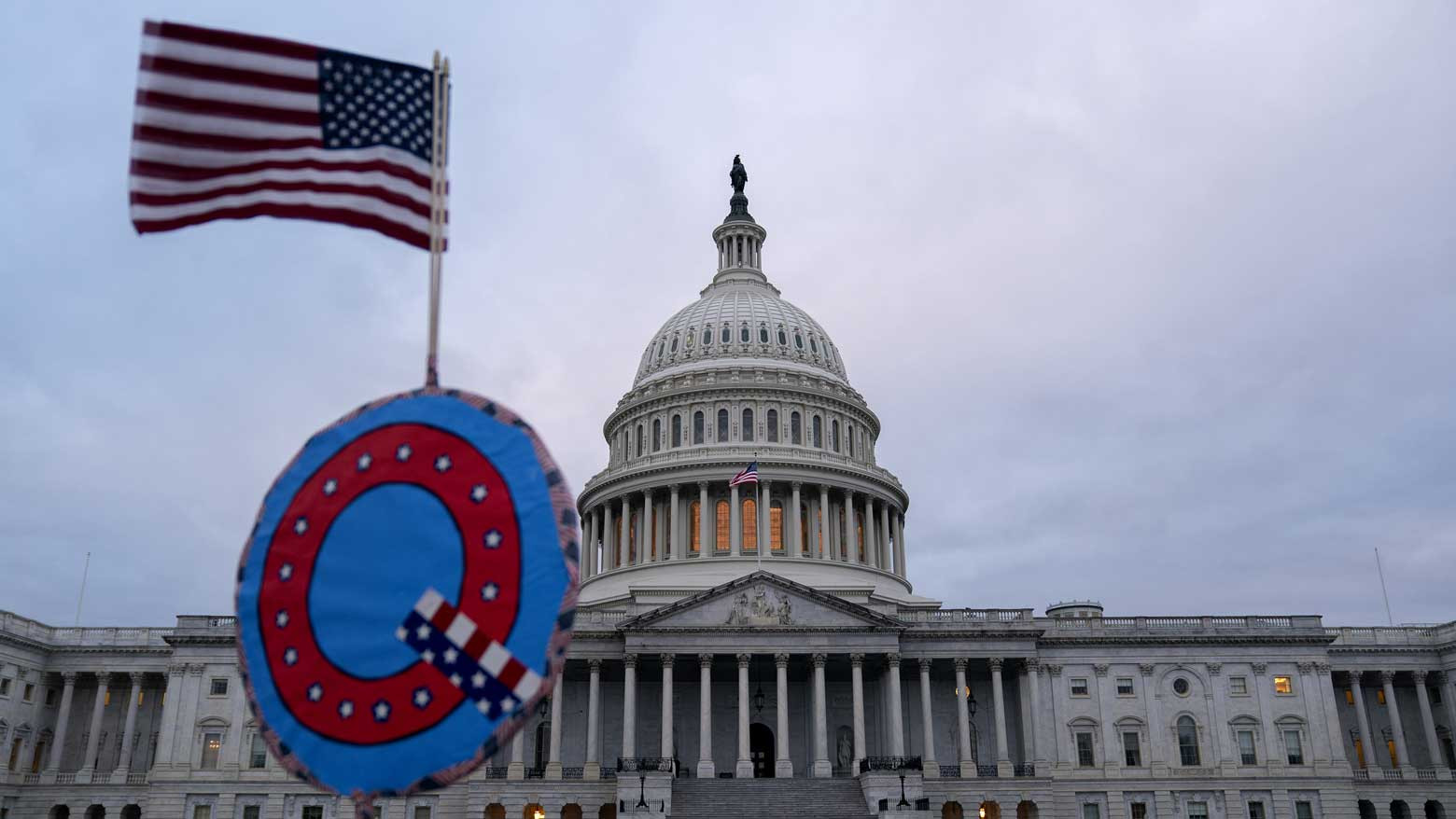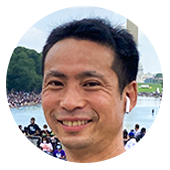March 4 was a big day for QAnon believers. For several weeks beforehand, a theory had circulated online that former President Donald Trump would be reinstated on that date. President Joe Biden had been in office just over a month.
The idea was so far-fetched I couldn't understand how anyone would believe it. So I took myself to the United States Capitol building in Washington D.C. to find out.
Outside the building, I met a group of five people who did indeed believe. "We've come to see the inauguration ceremony of President Trump," said one.
By some estimates, there are at least several million QAnon followers in the US. The group's core ideology is that the government is controlled by a cabal of Satan-worshipping pedophiles. During the coronavirus pandemic, more people have turned to QAnon as COVID-19 fears have fueled an interest in conspiracy theories.
Many of the people who stormed the US Capitol building in January wore clothing featuring the QAnon logo. The FBI says the theories are "driving both groups and individual extremists to carry out criminal or violent acts," and they are monitoring some of the movement's leading figures.
QAnon in the classroom
Grand Blanc in the state of Michigan is home to about 8,000 people. The small town made national headlines after apparent QAnon sympathizer Amy Facchinello won election to the local board of education. In the US, boards of education have a strong influence on school leadership, textbooks and curriculums.
Local high schooler Lucas Hartwell found social media posts by Facchinello that suggested support for QAnon, and it set off a media storm. People have been calling for her dismissal ever since.
"I had heard of QAnon before and I was somewhat familiar with it," says Hartwell. "But I never thought it would be in my own backyard. My main concern is how she is going to impact the school curriculums with these crazy and outlandish beliefs."
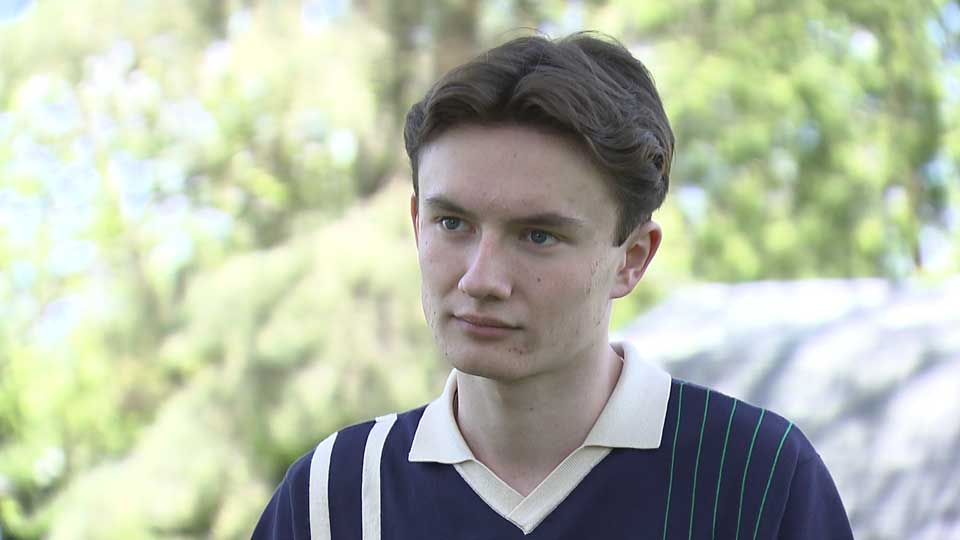
Confronting the controversy
Facchinello says she is perplexed by the media coverage: "I am shocked by all of this. Everyone in this country has the right to have whatever viewpoint they want."
But when it comes to QAnon, she is evasive.
Tsuji (NHK World): "Do you believe in the QAnon narrative?"
Facchinello: "When Trump was inaugurated, he said he was going to give the power back to the people."
Tsuji (NHK World): "I'm not talking about Trump. I'm talking about the QAnon narrative."
Facchinello: "President Trump wanted to put the power back into the people and restore that. So if that's the narrative, to put the power back into the people's hands, I'm in support of that narrative."
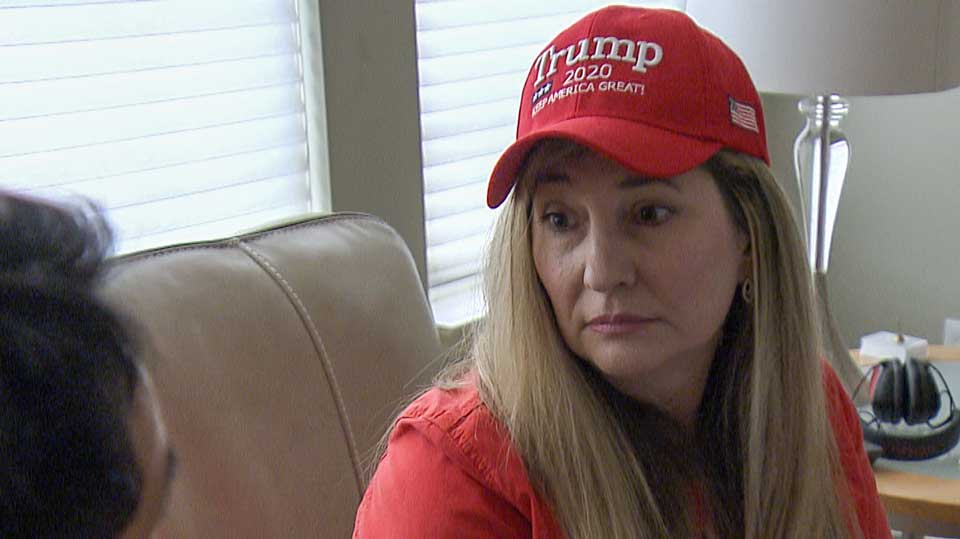
Cancelling QAnon
Facchinello charges that the criticism she faces is part of so-called "cancel culture", a term used to describe the practice of pressuring people to resign their jobs or withdraw from public view after unpopular comments and actions.
She thinks the real issue is simply that she is a conservative who supports Trump, not whether she identifies with QAnon theories, and is determined to resist the pressure.
"They cannot silence us and cancel us just because they don't like our conservative viewpoints," she says. "I have the responsibility of representing the people who voted for me and I am not going to resign."
Crazed conspiracies or partisan politics?
Patty Duffy, a retired teacher from the Grand Blanc area, says the concerns about Facchinello's appointment have nothing to do with partisan political views.
"Different opinions are wonderful, whether it is conservative, moderate or progressive. But it has to be based on the same reality. To have a good functioning school board, every member has to deal with the same reality, but Mrs Facchinello's decisions are based on an alternative reality," she says.
Duffy teamed up with other former teachers to organize a protest in May calling on Facchinello to resign. Hartwell and other high school students took part. "No more Q in our school" was the chant.
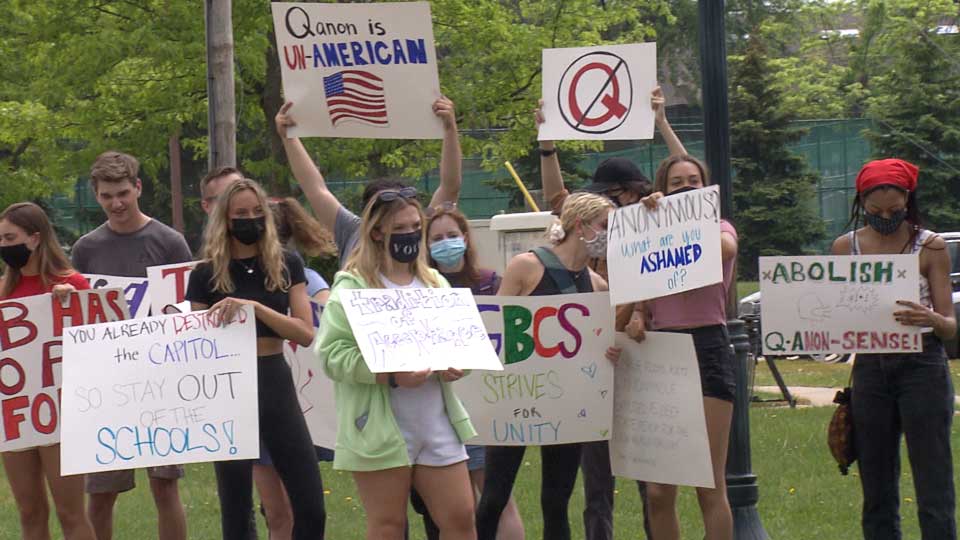
Nearby, Facchinello and her supporters staged a counter event. "We are sick of being canceled. We are sick of being shouted down for having conservative views. We are all here for free speech," said a member of the Facchinello camp.
Most QAnon believers are also Trump supporters. For many of them, attacks on QAnon theories are no more than liberal protests against the former president and conservatives. And the battle lines have been drawn in Grand Blanc.
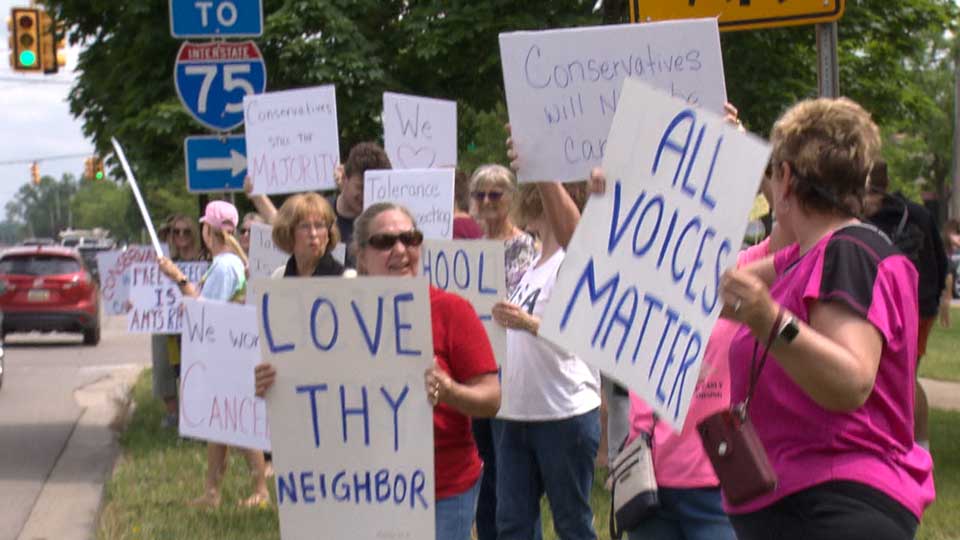
"Could you arrange a meeting?"
Facchinello and her husband insist they're not looking for confrontation. At the end of our interview, they asked for ideas to bridge the divide. They even requested help to set up a face-to-face meeting with their most prominent critics.
"You are talking to both sides and we cannot directly talk to the Hartwell family," said Facchinello.
But when approached, the Hartwell family had no interest. "Our beliefs are fundamentally different and a meeting with them unfortunately would not help," said Lucas Hartwell.
Conspiracy theories appear to have widened the existing divisions, and what used to be a gap has become a chasm that's all but impossible to bridge.
